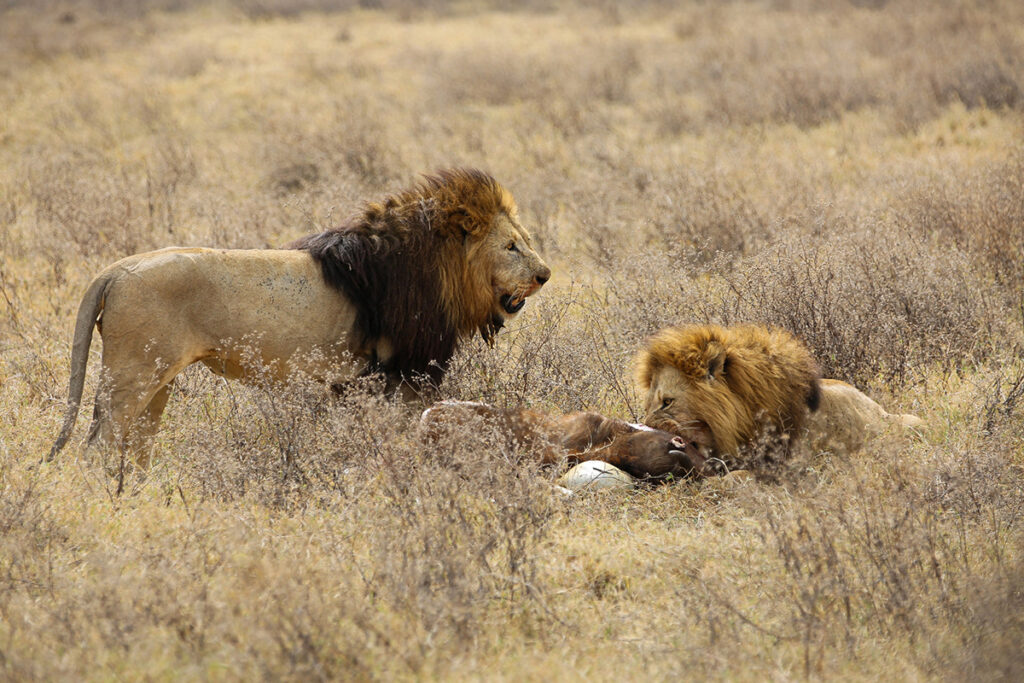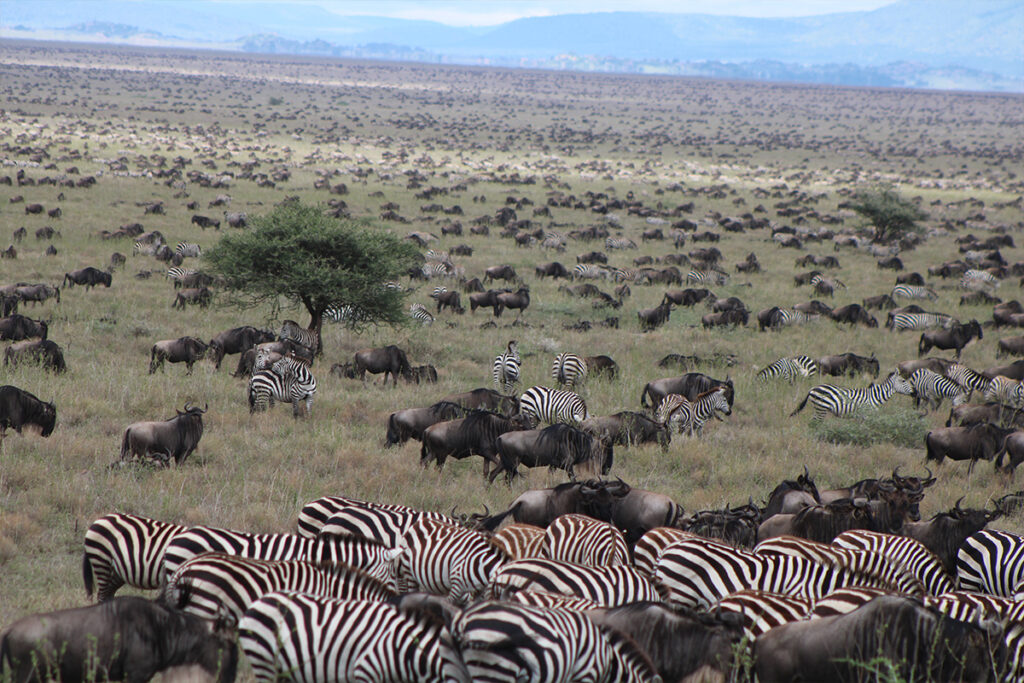Elders hold a surprisingly pivotal role in Tanzanian society, often seen not just as guardians of tradition but also as conduits of wisdom. Their insights and stories bridge the gap between generations, allowing younger Tanzanians to navigate contemporary challenges while staying rooted in their cultural identity. This veneration extends beyond the familial context, enveloping community leadership and conflict resolution.
Historically, Tanzanian elders have been the pillars of moral guidance and decision-making. Their influence stretches into various aspects of life, from overseeing rituals to adjudicating local disputes. A remarkable 70% of community decisions are believed to be shaped significantly by elders; this statistic underscores their enduring legacy in societal governance, ensuring cohesive community networks and preserving cultural continuity.
The Role of Elders in Tanzanian Society
Elders in Tanzanian society play vital roles, acting as pillars in their communities. They are often seen as the keepers of tradition, passing down stories and wisdom that link the past to the present. This responsibility ensures that younger generations remain connected to their cultural roots. In many Tanzanian tribes, elders are highly respected, offering guidance not only to families but also in broader community settings. Their influence is strong, as they help maintain societal norms and values.
Besides storytelling and tradition, elders are central to decision-making processes. Their wide range of experiences provides valuable insights when resolving disputes. Many communities look to elders for fairness and wisdom in making choices that could impact everyone. This reliance on elders is embedded in the culture, which values age and experience. Whether deciding on community events or family matters, elders are often at the forefront.
The spiritual role of elders should not be overlooked. Many elders have a deep understanding of spiritual beliefs and practices, which are crucial aspects of Tanzanian culture. They lead various ceremonies and rituals that mark important life stages. Their presence is seen as a blessing, often believed to ward off negative influences. Elders foster a sense of unity by performing these sacred duties, grounding communities in their spiritual beliefs.
Education is another area where elders contribute significantly. They teach young Tanzanians life skills and moral lessons. These teachings often happen informally through stories and observations. An elder’s endorsement of a lesson can considerably increase its impact. With younger generations facing new challenges, elders provide a tried-and-tested perspective that helps balance tradition and modernity.
Elders as Custodians of Tradition
In Tanzanian society, elders are revered as the main custodians of tradition. Their role is crucial in ensuring cultural practices and ancient wisdom endure through the generations. They safeguard tribal customs and rituals, which adds depth to the cultural richness of the community. By acting as bridges between the past and present, they maintain the thread of continuity. Younger members often turn to elders for stories that bring history to life.
Traditionally, elders have been the primary source of oral history, passing down knowledge through storytelling. This method is not only engaging but also effective in conveying cultural values and lessons. As more Tanzanians embrace modernity, the stories shared by elders help ground younger people in their heritage. These tales often include elements of folklore, myth, and history, making them both educational and entertaining. Through their stories, elders teach moral values and ethical living.
Elders also lead various traditional ceremonies, imbuing them with authenticity and meaning. Their presence ensures that rituals are performed correctly, following age-old customs. This practice is particularly apparent during events such as weddings, initiations, and harvest festivals. In these settings, elders guide participants, ensuring that no tradition is lost or forgotten. The ceremonial knowledge they hold is invaluable in maintaining cultural order.
The relationship between elders and the community is symbiotic. While elders offer wisdom, they also gain respect and care from the community. This mutual respect ensures that traditions are not only preserved but also respected. By balancing both past wisdom and present needs, elders help communities navigate their cultural identities. Tanzanian society thus benefits greatly from the presence of its elders, who sustain a rich, cultural tapestry.
Influence of Elders on Decision Making in Tanzanian Communities
The influence of elders on decision making in Tanzanian communities is profound. Elders often act as mediators when conflicts arise, providing wisdom and impartiality. Their decisions are highly respected due to their vast life experiences. This respect ensures that their judgments are more readily accepted by all parties involved. Therefore, their role is crucial in maintaining communal harmony and peace.
In many Tanzanian villages, elders form councils that oversee important community matters. These councils discuss various issues, from land disputes to the organization of festivals. Their collective wisdom helps in finding balanced solutions that benefit the entire community. The councils’ recommendations are usually adhered to, reflecting the deep trust in elders’ judgment. Such a system ensures that decisions are made fairly and thoughtfully.
Younger community members often seek the counsel of elders before making significant personal decisions. This reliance is seen in matters like marriage, career choices, and even parenting. Elders provide a blend of cultural wisdom and practical advice. This guidance helps young people make choices that are well-informed and culturally appropriate. Such interactions strengthen the bonds between generations.
The respect for elder decision-makers also extends to political and developmental decisions. In some areas, local governments consult elders to gain insights into community needs. This practice ensures that developmental projects align with the community’s cultural values and needs. By including elders in these discussions, Tanzanian society promotes inclusive and culturally sensitive development. Their input is invaluable in navigating the complexities of modernity while preserving cultural integrity.
The Continuity of Elders’ Significance in Modern Tanzania
The role of elders remains significant in modern Tanzania, adapting to contemporary changes while maintaining traditional values. As the country modernizes, the wisdom and guidance of elders bridge the gap between the past and the present. They help navigate new challenges without losing cultural identity. This integration ensures that Tanzanian society progresses cohesively. Despite modern influences, elders’ advice is often sought in both rural and urban settings.
Elders continue to be educational figures, teaching not only traditional knowledge but also adapting lessons for modern contexts. They mentor young people on balancing cultural heritage with modern life aspects. This mentorship extends to areas such as digital literacy and modern career paths. By staying relevant, elders foster a blend of old and new wisdom. This dynamic approach benefits younger generations immensely.
Community involvement of elders in local governance remains strong. They contribute to the design and implementation of development projects. Their insights ensure that projects respect and incorporate cultural values. This collaboration between elders and modern leaders creates sustainable development. The harmony between tradition and modernity helps communities thrive.
Religious and spiritual roles of elders also persist, with many still leading crucial ceremonies. They guide families through significant life events such as births, marriages, and funerals. By leading these rites, elders provide a sense of continuity and stability. Their presence in such events is seen as essential. It ensures that cultural and spiritual practices are upheld.
In political realms, elders influence both local and national decisions. Politicians often seek the counsel of respected elders to gauge public sentiment. This relationship enhances the democratic process, ensuring that decisions reflect the people’s cultural values. The involvement of elders in politics helps maintain societal balance. Their wisdom ensures that modern laws and policies respect traditional norms.
Elders also play a crucial role in economic guidance, offering advice on sustainable practices. Their traditional knowledge in areas like agriculture and crafts is invaluable. This expertise supports younger entrepreneurs in building businesses that honor cultural practices. By blending traditional methods with new technologies, communities achieve economic resilience. Elders thus remain integral to both cultural and economic sustainability.
Key Takeaways
- Elders in Tanzania are vital custodians of tradition and culture.
- They play a crucial role in community decision making and maintaining peace.
- Elders adapt traditional teachings to modern contexts, helping the young balance both worlds.
- Their involvement ensures that development projects respect cultural values.
- Elders’ wisdom is essential in local governance, spiritual ceremonies, and economic sustainability.
Conclusion
The role of elders in Tanzanian society remains indispensable, weaving tradition into the fabric of modern life. Their influence stretches across cultural, political, and economic spheres, providing essential guidance. By skillfully blending time-honored wisdom with contemporary knowledge, they help Tanzanian communities navigate the challenges of the modern world.
As custodians of tradition and pillars of decision-making, elders maintain a crucial balance between past and future. They ensure that development respects cultural practices while fostering growth. Their enduring significance underscores the value of wisdom borne from experience, establishing a robust continuity in Tanzanian life.



